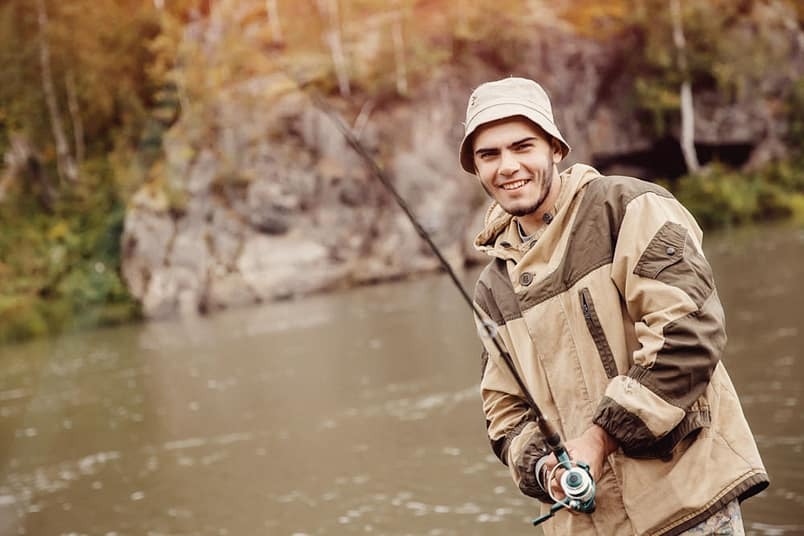Going on vacation while sober can be a rewarding and fulfilling experience. Rather than seeing it as a challenge, it’s an opportunity to explore new destinations, engage in activities that align with your sober lifestyle, and deepen your connection with yourself and others. With proper planning and support, a sober vacation can be just as enjoyable, if not more so, than one involving alcohol.
Crestview Recovery offers valuable resources and guidance for individuals seeking to maintain sobriety while traveling. We emphasize the importance of self-care, mindfulness, and finding alternative forms of enjoyment. From adventurous excursions to cultural explorations, there are countless ways to have fun and create lasting memories without alcohol.
Ultimately, going on vacation while sober is not only possible but can also be incredibly enriching, allowing you to fully immerse yourself in the experience and embrace all that travel has to offer.
How To Stay Sober On Vacation
Vacations are an important part of unwinding, and it’s key to make time for relaxing and taking in new experiences. There’s no need to wait until you’ve been sober for a certain amount of time before choosing to relax in that way. It’s not a “reward” that only comes at the end of achieving everything you want. Vacations are an important part of revitalizing your spirit and renewing your resolve to stay sober.
Here are some tips for staying sober regardless of vacation destination:
- Plan ahead: Research alcohol-free destinations and activities that align with your sober lifestyle before your trip.
- Set boundaries: Communicate your sobriety goals to travel companions and kindly decline invitations to alcohol-centric events.
- Find support: Seek out sober travel groups or online communities for encouragement and camaraderie.
- Stay mindful: Practice mindfulness techniques to stay present and focused on your sobriety during your vacation.
- Stay active: Engage in physical activities like hiking, swimming, or yoga to keep yourself occupied and energized.
- Enjoy culinary experiences: Explore local cuisine and culinary delights as an alternative to alcohol-centered socializing.
- Plan sober-friendly excursions: Research and participate in activities like sightseeing tours, museum visits, or cultural experiences that don’t revolve around alcohol.
- Stay connected: Stay connected with your support network through phone calls, texts, or virtual meetings for accountability and encouragement.
- Reflect and celebrate: Take time to reflect on your sober travel experiences and celebrate your accomplishments and growth along the way.
How To Handle Triggers And Temptations While On Vacation
 No matter how much you prepare, there will always be some risk of encountering temptations to imbibe in an addictive substance. Here are some strategies for working through the moments of temptation and still enjoying your vacation:
No matter how much you prepare, there will always be some risk of encountering temptations to imbibe in an addictive substance. Here are some strategies for working through the moments of temptation and still enjoying your vacation:
- Create a distraction plan: Prepare a list of activities or hobbies that you can engage in when you encounter relapse triggers or temptations. This could include reading a book, trying a new hobby, or exploring the local sights.
- Practice visualization: Visualize yourself successfully navigating through triggering situations without succumbing to temptation. Mentally rehearse your response to triggers, reinforcing your commitment to sobriety.
- Use positive affirmations: Repeat affirmations or mantras that reinforce your sobriety and resilience whenever you feel triggered. Phrases like “I am strong and in control of my choices” can help bolster your confidence.
- Stay flexible: Be open to adjusting your plans or itinerary if you find yourself in situations that pose a risk to your sobriety. Trust your instincts and prioritize your well-being above all else.
- Find safe spaces: Identify safe spaces or environments where you feel comfortable and supported, whether it’s a quiet cafe, a scenic park, or your accommodations. Retreat to these places when you need a break from triggering situations.
- Practice deep breathing: Use deep breathing exercises to calm your mind and body when facing triggers or cravings. Focus on your breath to center yourself and regain control over your emotions.
- Reflect and learn: After your vacation, take time to reflect on any triggers or temptations you encountered and how you successfully navigated them. Use these experiences as opportunities for growth and learning.
By incorporating these strategies into your sober vacation toolkit, you can effectively handle triggers and temptations while staying true to your sobriety goals.
Create a Sobriety Toolkit For Your Sober Vacation
A sobriety toolkit is a collection of resources and strategies that individuals use to maintain their sobriety and navigate challenging situations without alcohol. When embarking on a sober vacation, having a tailored toolkit can be invaluable in ensuring a fulfilling and enjoyable experience.
Here are some examples of what to include:
- Non-alcoholic beverages: Pack your favorite non-alcoholic drinks to enjoy instead of alcohol.
- Mindfulness tools: Bring items like mindfulness training apps, stress-relief toys, or journals to stay grounded and present.
- Support resources: Include contact information for sober support groups, hotlines, or online communities for assistance when needed.
- Healthy snacks: Keep nutritious snacks on hand to curb cravings and maintain energy levels.
- Positive affirmations: Write down affirmations or motivational quotes to reinforce your commitment to sobriety.
- Distraction activities: Bring books, games, or puzzles to occupy your mind during downtime.
- Emergency plan: Have a plan in place for dealing with unexpected triggers or temptations, including steps to remove yourself from the situation if necessary.
Best Places To Take A Sober Vacation
 Choosing the best places for a sober vacation involves considering destinations that offer a diverse range of alcohol-free activities, natural beauty, and cultural experiences. Here are some top picks for vacation destinations that may provide fewer temptations for imbibing in addictive substances:
Choosing the best places for a sober vacation involves considering destinations that offer a diverse range of alcohol-free activities, natural beauty, and cultural experiences. Here are some top picks for vacation destinations that may provide fewer temptations for imbibing in addictive substances:
- National parks: Explore the stunning landscapes and outdoor adventures offered by national parks like Yellowstone, Yosemite, or Zion, where you can hike, camp, and stargaze without the need for alcohol.
- Wellness retreats: Unwind and rejuvenate at wellness retreats focused on yoga, meditation, and holistic healing, such as Sedona in Arizona or Ubud in Bali.
- Cultural cities: Immerse yourself in art, history, and local culture in cities like Florence, Kyoto, or Marrakech, where you can enjoy museums, galleries, and culinary delights without the emphasis on alcohol.
- Adventure destinations: Seek thrills and adrenaline-pumping activities in destinations like Queenstown, New Zealand, or Banff, Canada, where you can ski, kayak, or bungee jump to your heart’s content.
- Beach escapes: Relax and soak up the sun on pristine beaches in destinations like Maui, Maldives, or Costa Rica, where you can enjoy water sports, snorkeling, and beachcombing without the need for alcohol-fueled nightlife.
What Are The Benefits Of Sober Vacations
There’s no sense in depriving yourself of vacations and fun just because you’re working on getting sober. Recovery doesn’t have to mean depriving yourself of good times. In fact, we need
Sobriety allows for a clear mind and presence, enabling you to fully immerse yourself in the sights, sounds, and experiences of your vacation destination.
Avoiding alcohol promotes better physical health, providing energy for engaging in activities like hiking, swimming, or exploring local attractions.
Sobriety fosters emotional stability and resilience, allowing you to navigate challenges and setbacks with a clear perspective and positive mindset.
Without the influence of alcohol, you can form genuine connections with fellow travelers, locals, and yourself, fostering meaningful relationships and memories.
Skipping alcohol-related expenses saves money, allowing for more budget-friendly travel experiences or the ability to splurge on other aspects of your vacation.
Sobriety during vacation encourages personal growth, self-reflection, and empowerment, as you overcome challenges, expand your comfort zone, and discover new interests and strengths.
How Can Travel Aid In Addiction Recovery
Travel can be a powerful tool in addiction recovery, offering numerous benefits and opportunities for growth.
Here’s how travel can aid in addiction recovery:
- Change of environment: Traveling allows individuals to break away from familiar triggers and routines associated with substance use, providing a fresh start and new perspective on life.
- Self-discovery: Exploring new places and cultures encourages self-discovery and personal growth, helping individuals reconnect with themselves and their interests beyond addiction.
- Healthy distractions: Engaging in travel activities such as sightseeing, adventure sports, or cultural experiences provides healthy distractions from cravings and negative thoughts associated with addiction.
- Building support networks: Traveling can facilitate the formation of supportive relationships and connections with fellow travelers, locals, or members of a sober support network, fostering a sense of belonging and camaraderie.
- Stress reduction: Taking a break from the stresses of daily life through travel promotes relaxation and mental well-being, reducing the risk of relapse triggered by stressors.
- Cultivating resilience: Navigating the challenges and uncertainties of travel builds resilience and coping skills, which are essential for maintaining sobriety in the face of adversity.
- Celebrating milestones: Traveling to commemorate milestones in recovery, such as anniversaries or achievements, provides an opportunity for reflection, gratitude, and celebration of progress.
Overall, travel can serve as a transformative and enriching experience in addiction recovery, offering opportunities for healing, growth, and newfound freedom from substance dependence.
Drug And Alcohol Rehab In Portland

Recovery is no vacation, Crestview Recovery offers comprehensive drug and alcohol rehab programs designed to support individuals on their journey to sobriety. Our treatment addiction treatment programs are tailored to meet the unique needs of each client, combining evidence-based therapies with holistic approaches to healing.
Crestview Recovery’s programs include medical detox, a partial hospitalization program (PHP), and aftercare planning to provide comprehensive aftercare planning and support to help clients maintain sobriety and prevent relapse upon completing treatment. Contact us today to learn more about our treatment programs and start your journey to recovery with Crestview Recovery.
































